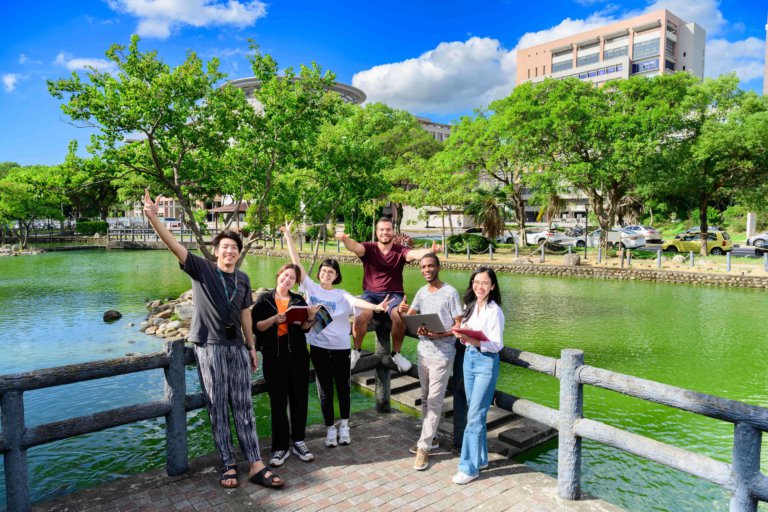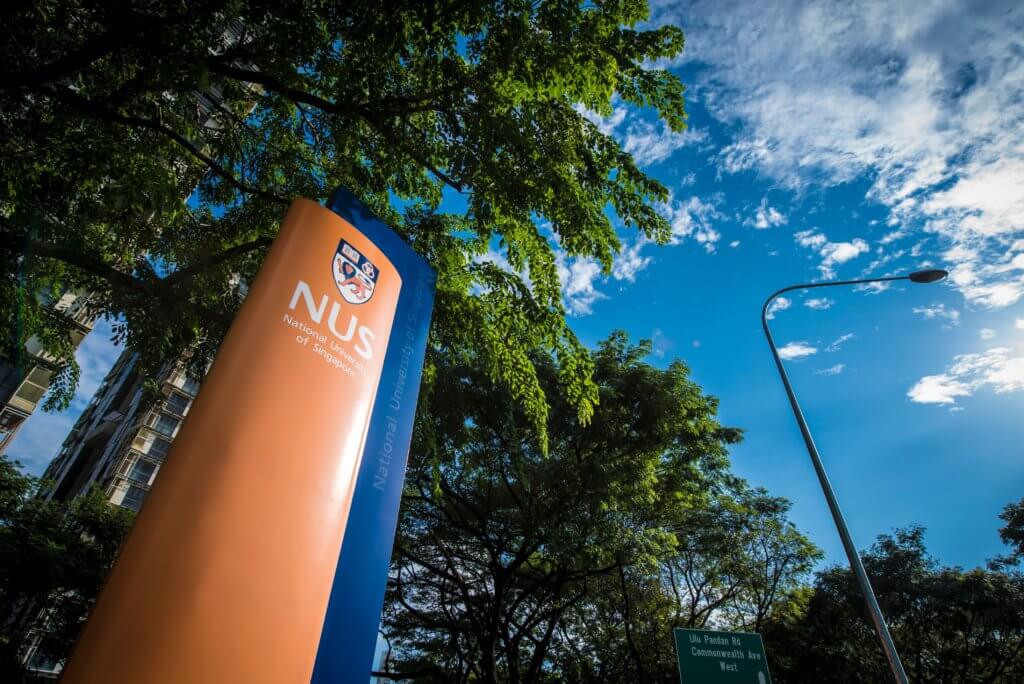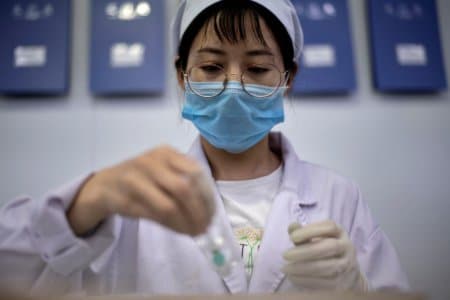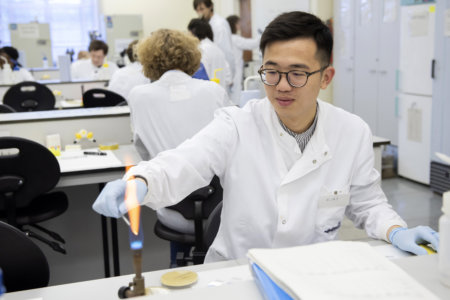
Armed with a medical degree, you can change people’s lives in countless ways. You can innovate through medical research, report on the latest breakthroughs in the field, handle crises and emergencies as a public health worker, become a licensed anaesthetist, and so much more.
If you’ve set your heart on studying a medical programme but you’re not sure where you should do it, well, you’re not alone. It’s natural to consider countries such as the US, UK, and Europe when it comes to pursuing medicine abroad. However, when you take into account factors such as affordability and financial aid, finding a programme in the right location within these countries can feel overwhelming.
Thankfully, students can now look forward to pursuing their medical studies at Asian universities. Some of these institutions are fast climbing the ranks and becoming top contenders as medical study abroad destinations for international students. Below are four dynamic institutions bolstering their medical programmes to nurture a generation of students capable of addressing the evolving healthcare challenges in our interconnected world.
Chang Gung University
A favourite for students worldwide, Taiwan is a vibrant democracy and one of Asia’s freest environments for expression — the ideal setting for anyone looking for an education that broadens horizons and minds. When it comes to medical education, one institution stands out: Chang Gung University (CGU), which ranks among the top five out of 151 universities in Taiwan. Here, innovation thrives in a nurturing environment where students, research and entrepreneurialism take centre stage. With a low student-faculty ratio of 11:1, personalised attention is a hallmark, cultivating an atmosphere of collaboration and support.
Four colleges dedicated to Medicine, Engineering, Management, and Intelligent Computing — supported by 592 full-time faculty members and 681 adjunct faculty members — offer a diverse array of programmes. Those interested in physical therapy (PT) can pursue the undergraduate programme in the Department of Physical Therapy. Students receive comprehensive theoretical and practical training from experienced specialists. Upon completion, graduates can work as PTs in Taiwan, Singapore and Malaysia, as the programme is recognised by the Ministry of Health there. CGU’s PT students also complete internships at Chang Gung Memorial Hospital, Singapore General Hospital and KK Women’s and Children’s Hospital annually.
CGU’s postgraduate programme in Biomedical Sciences is just as impactful. As an elite research-oriented institution with close links to Chang Gung Memorial Hospital and a total of 54 faculty members listed as “World’s Top 2% Scientists,” this makes the programme an excellent platform for students to engage in cutting-edge research. CGU’s alliance with the Formosa Plastics Group and the Chang Gung Medical Foundation, Taiwan’s largest hospital system, provides more access to abundant research resources in manufacturing and medical services — earning CGU a reputation as a top-class institution that equips its graduates for both personal and professional success.
These are accomplishments that are recognised globally — thanks to their alma mater’s commitment to enabling research and academic exchange programmes with nearly 100 international universities in the US, Japan, Australia, Hong Kong, Singapore, and France. Situated in the suburban area of Taipei, the CGU campus is a global village itself, where . Spaces are as state-of-the-art as they are eco-friendly and convenient. There are free shuttle bus services to and from public transit stations, the hospital, and shopping areas. Taipei city centre is approximately 25 minutes via Taiwan’s Metro Rapid Transit. Click here to learn more about Chang Gung University.

Hokkaido’s School of Medicine is one of the oldest and most traditional medical schools in Japan. Source: Hokkaido University/ Facebook
Hokkaido University
Renowned as Japan’s picturesque northernmost island, Hokkaido is home to 19 UNESCO World Heritage Sites. With new discoveries and endless inspiration just around the corner, students here often come to love the vibrant backdrop of this city, which is also known as one of the most livable cities in the Land of the Rising Sun. Here you’ll also find Hokkaido University — an institution that has produced award-winning research and ranked 196th in the world and eighth in Japan.
Hokkaido University offers a holistic education that is guided by four basic philosophies: “Frontier Spirit,” “Global Perspectives,” “All-round Education” and “Practical Learning.” These principles have been cultivated over the course of the institution’s long history.
Its School of Medicine is one of the oldest and most traditional medical schools in Japan. It was originally founded in 1919 as Hokkaido Imperial University School of Medicine, and in 2019, it marked its 100th anniversary.
Since its inception, Hokkaido University has ensured that students can explore the liberal arts in addition to medical training. Studying liberal arts and scientific subjects outside of medicine might seem unrelated to medical studies. However, these subjects fuel their imagination and creativity, fostering a comprehensive worldview crucial for research and delivering medical care.
More importantly, it equips them with critical soft skills to apply during clinical clerkships, where students learn the duties and responsibilities of medical practice as a member of a medical team, which is essential in actual clinical settings. This experience provides them with the specialised knowledge, diagnostic skills, and medical techniques necessary to become a doctor.

Seoul National University is ranked 17th in Asia according to QS Asia University Rankings 2023. Source: Seoul National University
Seoul National University
Seoul National University (SNU) is a vibrant and intellectual community where students and scholars work together to build a brighter future. SNU holds the distinction of being South Korea’s first national university and is ranked 41st in the world by QS World University Rankings. It equips students to not only thrive but also excel in an increasingly globalised world.
The College of Medicine is a world-class provider of undergraduate, graduate and research education. Here, over 2,000 students in undergraduate and graduate programmes receive exceptional education and are trained to be competent healthcare providers and scientists. Their learning is supported by 520 dedicated professors who have a reputation for excellence in teaching and medical research.
“Our faculty is devoted to providing the highest standard of medical treatment and research in all fields of medical science as well as the public contribution to improve global healthcare and the future of Korea,” says dean Jeong Eun Kim.
Upon completing a two-year premedical course, students gain in-depth knowledge and scientific understanding of diseases, alongside vital interpersonal communication skills. These skills prepare them to engage effectively with patients during their four-year tenure at the College of Medicine and abroad as well. SNU Medicine actively promotes student exchanges and faculty research activities through collaborations with 95 leading domestic and international medical schools, as well as organisations in 31 countries.
With an ever-growing list of English-taught lectures, SNU is becoming increasingly attractive to international students seeking a unique study experience that does not compromise on quality. All foreign students can pursue Korean Language classes, capitalising on this once-in-a-lifetime experience as they gain a true international perspective.
“Our goal is to become a leading research-oriented medical college based on fundamental basic science, cutting-edge clinical research, and multidisciplinary biomedical collaboration,” says Kim. “We will continue to hone our brilliant academic tradition accumulated by numerous outstanding graduates.”

Since National University Singapore’s founding in 1905, more than 12,000 graduates have passed through their doors. Source: National Singapore University
National University Singapore
The National University of Singapore (NUS) is a leading global university based in Asia, powered by a mission “to transform the way people think and do things through education, research and service.”
Established in 1905, the NUS Yong Loo Lin School of Medicine is a premier medical education and research institution in Asia. It ranks among the world’s top medical schools in both the Times Higher Education World University Rankings 2023 and the QS World University Rankings by Subject 2022.
Its interdisciplinary and interprofessional five-year curriculum offers students a comprehensive learning experience, shaping them into compassionate and visionary doctors and nurses. Since its inception, over 12,000 students have graduated from the school.
Within this dynamic learning environment, students can specialise in a range of fields including Anaesthesia, Biochemistry, Medicine, Orthopaedic Surgery, Paediatrics, Physiology, and others.
For example, students who pursue a Bachelor of Medicine and Bachelor of Surgery (MBBS) degree learn about body systems and the basics of medical science, giving them a deep understanding of clinical conditions. This approach provides students with a longitudinal view, spanning from wellness to illness, life to death, and medical facilities to communities.
For international students, a move to Singapore offers the ideal opportunity to experience Asian culture while enjoying modern-world conveniences. As a cultural melting pot, Chinese, Malay, Indian and Eurasian influences can be seen everywhere with English as Singapore’s language of business, government and education.
*Some of the institutions featured in this article are commercial partners of Study International









